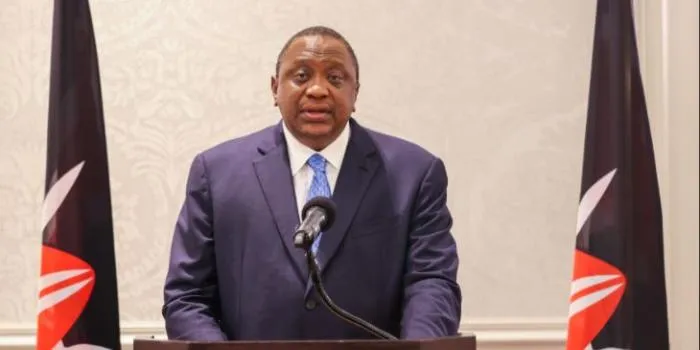President Uhuru Kenyatta speaks to a delegation at the United Nations office in New York on Tuesday, October 12, 2021. PSCU
After a public uproar by Kenyans on the high cost of electricity, President Uhuru Kenyatta on September 29 launched a task force report that recommended the reduction of the cost of electricity by 33 percent within four months.
However, the implementation of the recommendations of the Presidential Taskforce on Review of Power Purchase formed in March did not materialise as expected.
Consequently, in his address during the Jamhuri day celebrations on December 12, President Kenyatta stated that his power reduction plan was still on course. Nonetheless, he stated that the 30 percent reduction would be implemented in two phases. File image of meter models for tenantsFile The Head of State revealed that 15 percent would be achieved by the end of December with the other 15 percent effected during the first three months of 2022. "I am pleased to announce to the nation that the reduction of the cost of electricity will be implemented in two tranches of 15% each; with the first 15% achieved through initial actions focusing on system and commercial losses, to be reflected in the December bills, and a further 15% reduction, in the first quarter of 2022," Kenyatta stated.
Further, in a media report on December 13, it was revealed that the delay in achieving the president’s earlier promise was because of the hurdles the Ministry of Energy confronted when negotiating with Independent Power Producers (IPPs) who sell power to the Kenya Power and Lighting Company (KPLC).
According to an official at one of the IPPs, the move by Uhuru’s task force to have them lower their selling price to KPLC was unattainable.
The official explained that they had already signed contracts with the government adding that they had also spent billions on their current agreements.
"We have sank billions in the power plants, and Kenya can’t just wake up and abrogate contracts. They have a duty to honour the contracts," the official disclosed.
While insisting that they support the government’s move to reduce the cost of living for Kenyans, the power producers stated that they wished that the government would consult them in the process.
"We support the plan to make power cheap, but it cannot be done unilaterally or through decisions of a task force. The government must approach each power plant individually for a deal because each plant […]
